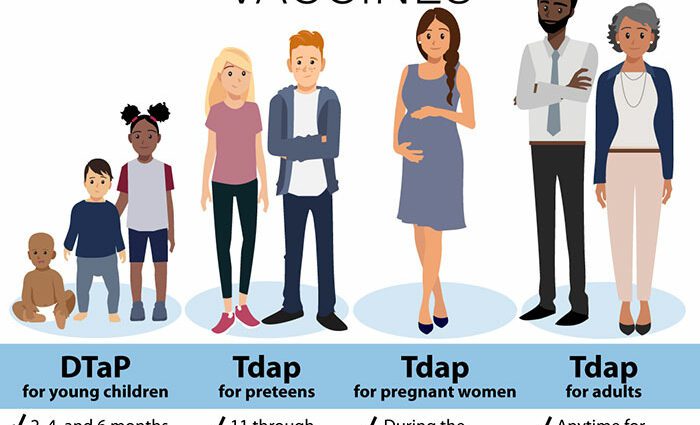Turinys
People, risk factors and prevention of pertussis
Žmonės, kuriems gresia pavojus
Adolescents and adults whose last vaccination was over 10 years old and babies under six months old are most affected by the bacteria Bordetella. It should be noted that the disease is more severe in infants.
Rizikos veiksniai
The risk factor that can cause a case of pertussis is the lack of vaccination.
Prevencija
Prevention of whooping cough involves vakcinacija. Some vaccines against whooping cough can also protect against diphtheria (= infection of the upper respiratory tract caused by a bacterium) and tetanus but also for some, also against polio or hepatitis B.
In France, the vaccination schedule recommends vaccination at the age of 2, 3 and 4 months then boosters at 16-18 months as well as at 11-13 years. A booster is recommended for all adults who have not been vaccinated against pertussis for more than 10 years.
In Canada, vaccination of infants against pertussis is routine. The vaccine is given at the age of 2, 4 and 6 months and between the age of 12 and 23 months (usually at 18 months). The booster dose of the vaccine should be given at the age of 4 to 6 years and then every 10 years.
In France as in Canada, the emphasis today is on the importance of reminders in adolescents and adults. The immunity provided by the vaccine wears off after about ten years.
Finally, pregnant women, and more broadly all adults who come into contact with young children, are recommended to be vaccinated against whooping cough.










